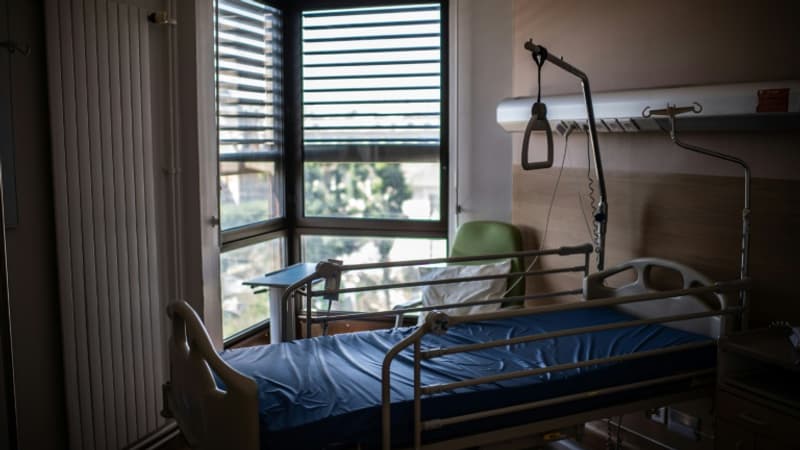The Minister of Health promised to “reopen beds” to relieve the hospital, but his “fight” promises to be tough: in 2022 more than 6,700 complete hospital beds will be closed, continuing the decline observed in the last twenty years.
As of December 31, 2022, the 2,976 public and private hospitals had exactly 374,290 full hospital beds, or 6,713 less than the previous year (-1.8%), according to the report from the statistics department of the social ministries (Drees). published this Wednesday, December 20.
39,000 beds eliminated since 2013
At the same time, health establishments have created 2,591 partial hospitalization places, without overnight stays in the establishment (+3.1%), reaching a total of 85,015 places. Unlike a bed, a day “spot” can typically accommodate several patients daily.
These figures, observed in both the public and private sectors, illustrate “a trend observed for several years”, which “reflects the will” of public authorities to reorganize the supply of hospital care towards more “outpatient” care. but also the shortage of personnel, which “does not allow the maintenance of the beds,” according to the authors of the study.
Since the end of 2013, a total of 39,000 full hospitalization beds have been eliminated (-9.4% in nine years) and 17,400 partial hospitalization beds have been created.
“Lack of attractiveness” of caring professions
The collapse in capacity has also been almost constant since the early 2000s, according to data available on the Irdes (Institute for Research and Documentation in Health Economics) website. Healthcare workers periodically denounce these bed closures, which saturate services, put pressure on teams and increase tensions in emergency services.
“My only fight for the public hospital is the reopening of the beds, although this is not very good news for Ondam (National Health Insurance Spending Target),” said Health Minister Aurélien Rousseau during a hearing in mid- October. in the National Assembly.
If the beds close, according to him, “it is not for budgetary reasons”, it is because of the “lack of attractiveness” of the caring professions. And the Government does not “stand by idly”, he defended, referring to the large budgets allocated during Health Security or the recent increases in night work. At the end of November he promised to “reopen several thousand beds before the end of the year.”
In total, around 29,800 beds were eliminated during the period from the end of 2016 to the end of 2022, which corresponds mainly to the presidency of Emmanuel Macron. This is much more than under his predecessor François Hollande (-15,000 between the end of 2012 and the end of 2017), but significantly less than during Nicolas Sarkozy’s five-year term (-37,000).
Capacity has also declined “more rapidly” since 2020 than before the Covid-19 epidemic, Drees notes in his study.
The health crisis may “explain a further decline”, in particular due to the temporary reassignment of intensive care staff, the descheduling of care or even the transformation of double rooms into single rooms. However, the decline observed in 2022 is the “most pronounced,” the authors point out.
Home hospitalization (HAD) saw its capacity increase by 1.6%, after a “jump” of 10.5% in 2020, and 6.8% in 2021.
Source: BFM TV


